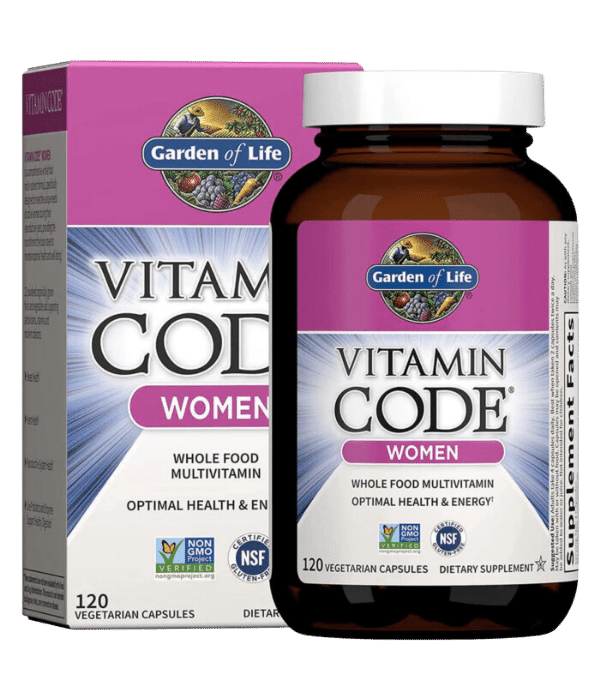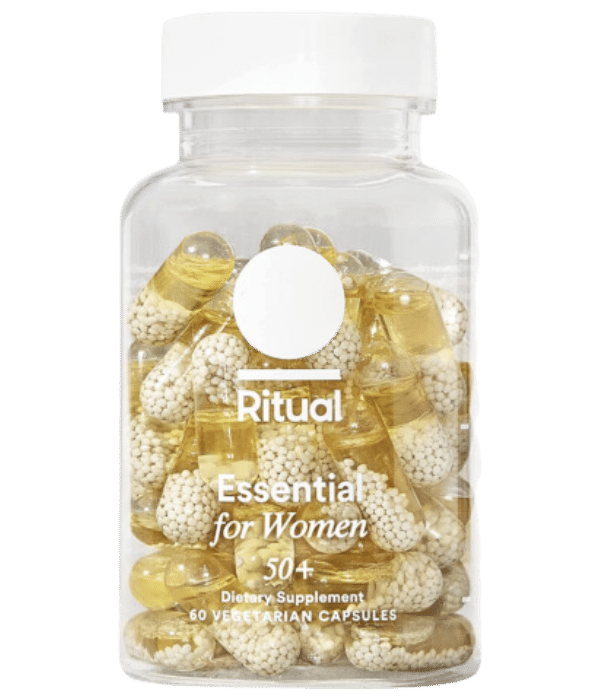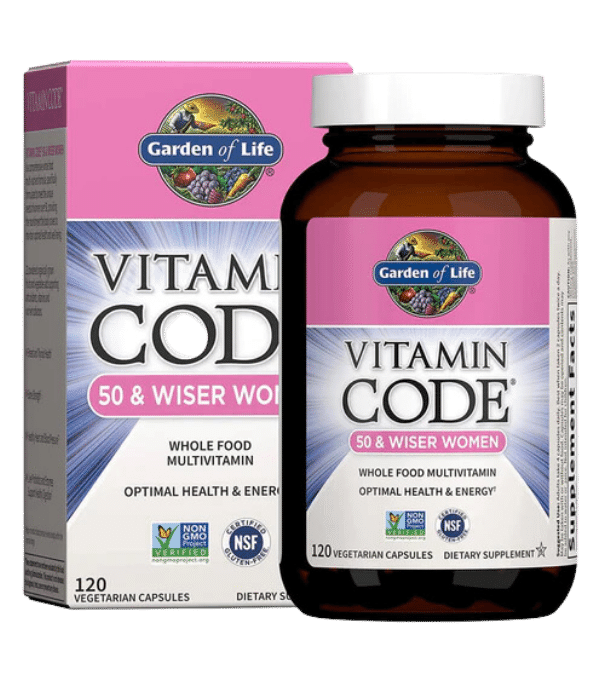Talk to a Registered Dietitian and use INSIDER20 for 20% off!
Talk to a real Dietitian for only $99: Schedule Now
This post contains links through which we may earn a small commission should you make a purchase from a brand. This in no way affects our ability to objectively critique the products and brands we review.
Evidence Based Research To fulfill our commitment to bringing our audience accurate and insightful content, our expert writers and medical reviewers rely on carefully curated research.
Read Our Editorial Policy
Multivitamins for women are specially formulated to meet the needs of a woman’s body, containing essential vitamins, minerals, and herbs helpful for hormone, energy, digestive, or immune support.
But how are you supposed to choose between the hundreds of multivitamins on the market?
We’ve got you covered with the eight best multivitamins to meet the nutrient needs of women at all ages and life stages, from reproductive-aged to pregnant to post-menopausal.
Keep reading to learn more about all eight multivitamins for women we recommend, including dietary supplements specific for women aged 50+, pregnancy, hormonal support and PMS symptoms, hair, skin, and nail health, and vision support.
Best Overall | with Omega-3 | for Women over 50 | |
|---|---|---|---|
| Product | Garden of Life | Ritual | Garden of Life |
| Form | Capsules | Capsules | Tablets |
| Cost | $48.99 for 30 servings ($1.63/serving) Shop Now | $31.38 for 30 servings ($1.05/serving) Shop Now | $48.99 for 30 servings ($1.63/serving) Shop Now |
Best for: Women aged 19-50, digestive health, and antioxidant support.
Our overall best pick for a women’s multivitamin is the Garden of Life Vitamin Code Women’s Multivitamin for its high quantity of vitamins and minerals primarily derived from raw, whole food ingredients or cultivated from healthy bacteria.
For example, the iodine in this supplement is derived from organic sea kelp, and many of the vitamins are cultivated from the probiotic bacteria S. cerevisiae.
In addition to 20 vitamins and minerals, this multivitamin contains 23 fruits and vegetables that add antioxidants and nutrients, including organic beet, broccoli, tart cherry, red cabbage, ginger, and more.
This multivitamin also provides beneficial digestive enzymes and live probiotics to support digestion and an antioxidant and immune support complex consisting of glutathione and coenzyme Q10.
Best for: Reproductive-aged women looking for brain and bone health support.
The Ritual Multivitamin for Women is designed to target the nutrients that reproductive-aged women are more likely to be lacking in—iron, magnesium, boron, folate, omega-3 fats, and vitamins B12, D, E, and K2.
The combination of omega-3 fats (in the form of DHA) and methylated vitamin B12 is thought to support brain health and cognition, while vitamins D and K2, boron, and magnesium help maintain bone strength.
They also have the research behind their vitamin, as a peer-reviewed clinical study found that women taking Ritual multivitamins for 12 weeks had a 43% increase in vitamin D and a 41% increase in omega-3 DHA levels compared to those taking a placebo.
Ritual’s Patented Beadlet In Oil Technology keeps the fat-soluble and water-soluble components separate, and the delayed-release design allows the nutrients to reach the small intestine for better absorption.
Lastly, the mint-essenced flavor of the capsules provides a more favorable supplement-taking experience—no chalkiness or off-putting taste with this multivitamin.
Best for: Women aged 50+
The Garden of Life Vitamin Code 50 & Wiser Women is the perfect multivitamin supplement for post-menopausal women, as the need for supplemental iron diminishes after menstruation ends.
Although this supplement requires taking four capsules per day, it may eliminate the need to take probiotics or gut health supplements due to the live bacteria and digestive enzymes present.
However, this multivitamin does not contain calcium—the mineral is difficult to add because of its large size; plus, there are downsides to supplemental calcium—so women over 50 may need to ensure adequate calcium intake from their diet to support bone health.
Best for: Reproductive-aged women wanting an all-natural and organic supplement.
The Garden of Life Mykind Organics Women’s Once Daily Multivitamin is the first multivitamin to utilize nutrients from 100% whole food ingredients.
Rather than using synthetic vitamins and minerals, these 19 nutrients are created using Clean Tablet Technology—a patent-pending process that derives nutrients from organic foods.
This supplement is currently the only brand of vitamins available that is dual certified, meaning it is both Certified USDA Organic and Non-GMO Project Verified.
The multivitamin also has a blend of 30 powdered fruits and vegetables to add more antioxidants, including organic garlic, parsley, holy basil, guava, cauliflower, kale, and more.
Most of the vitamins and minerals in this supplement are set at just over 100% of the RDA (Recommended Dietary Allowance), with 200% or more for vitamins D3 and B12.
However, some of the minerals are in lower doses (iron, magnesium, and calcium) because these minerals are incredibly bulky and would require additional capsules (many women prefer to take just one capsule).
The natural food-based nutrients may be more easily absorbed and bioavailable than synthetic nutrients, making this multivitamin one of the best for reproductive-aged women to get the vitamins and minerals they need.
Best for: Women with menopausal or PMS symptoms.
The Hi-Health Women’s Multi is a high-potency multivitamin with 43 vitamins, minerals, herbs, and compounds to support women’s health.
Ingredients in the “Women’s Support Complex” for hormonal health include:
As these ingredients have not all been well studied and can affect various aspects of hormonal balance, pregnant or lactating women should not take this supplement.
It’s also not recommended that women with hormone-sensitive cancers such as breast, uterine, or ovarian cancer should take this supplement, as some of the compounds act similarly to estrogen in the body.
If you’re unsure how these ingredients will interact with your health status, talk with your healthcare provider before starting this supplement.
Best for: Women on a budget who want extra support for hair, skin, and nails.
Containing ingredients thought to be supportive for hair, skin, and nail health, the Solaray Once Daily Woman Multivitamin is a great budget option for women with concerns in these areas.
Other than the wide array of vitamins and minerals, this supplement contains MSM (methylsulfonylmethane), an anti-inflammatory and antioxidant compound that plays an important role in collagen synthesis.
It also contains L-cysteine (an amino acid needed to make the antioxidant glutathione), L-methionine (a sulfur-containing amino acid that may help facilitate keratin production in the hair shaft), and high amounts of biotin (vitamin B7), which is thought to support hair and nail growth.
Lastly, the Solaray multivitamin provides some lesser-seen nutrients, like choline, molybdenum, and chromium, as well as digestive enzymes and tomato, carrot, and broccoli powder.
Best for: Women who are pregnant, trying to conceive, or lactating.
The Garden of Life Vitamin Code Raw Prenatal Multivitamin is a comprehensive formula with nutrients for women who are pregnant, trying to conceive, or lactating.
Some benefits of this prenatal are that it contains ginger to help alleviate morning sickness and uses a stomach-friendly iron (brown rice chelate) to reduce nausea or digestive upset—common symptoms with supplemental iron.
This prenatal also contains folate in a whole food form rather than folic acid, which is thought to be more bioavailable.
Plus, the multivitamin provides digestive enzymes and live probiotics to support both mother’s and baby’s immune systems.
While all nutrients are important, women require some vitamins and minerals in greater amounts.
When searching for a multivitamin for women, nutrient levels can depend on what stage of life you’re in—teen, reproductive-aged, pregnant, lactating, menopausal, or post-menopausal.
Adult, non-pregnant women (aged 19–50) are commonly deficient in several nutrients, including vitamin D, iron, and vitamin B6.
Post-menopausal women tend to be low in vitamin D and calcium, although supplemental calcium is not always recommended.
Plus, older women—and often younger women, too—can have inadequate consumption or levels of magnesium and vitamins C, D, B6, and B12.
Therefore, you should look for supplements with nutrients specific to your current life stage.
Other factors to consider when buying a multivitamin for women include certifications, like organic, non-GMO, vegan, or gluten-free, and if the product is manufactured in facilities that adhere to current good manufacturing practices (cGMPs).
Keep in mind that not everyone needs to take a multivitamin supplement—if you eat a healthy and well-balanced diet, you may only need to supplement with single nutrients (i.e., vitamin D3) or none at all.
While some vitamins and minerals are safe to take if you don’t actually need them (including water-soluble vitamins like vitamin C and B vitamins), others can be harmful if taken in excess (like vitamin A, calcium, and iron).
Common ingredients in a women’s multivitamin include folate, vitamin B6, vitamin B12, iron, vitamin C, magnesium, and niacin.
It depends on the person—some people don’t eat enough nutrient-rich foods and would benefit from a daily women’s multivitamin.
If you’re not sure, ask your doctor to check your nutrient levels and see if you’d benefit from a daily multivitamin.
In general, most people would be fine with taking a daily multivitamin.
As an aside, vegans and vegetarians should be mindful of their nutrient needs and would likely need to supplement with vitamin B12; they may also be low in vitamin D, iron, calcium, and zinc.
It can be difficult to tell if multivitamins are actually working unless you had a deficiency in a certain vitamin or mineral.
While some studies have found that multivitamins can help to protect against certain diseases, others have shown no connection.
It depends—some women may need to take a multivitamin while others don’t.
Conditions that increase the need for multivitamins include pregnancy, lactation, vegan or vegetarianism, and poor diet.